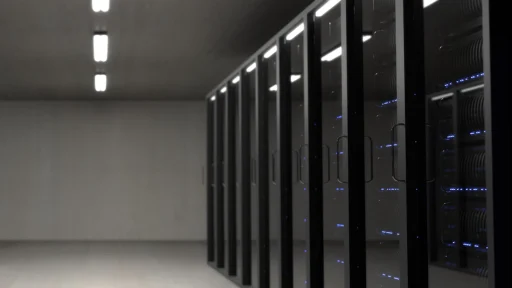

You might have noticed the buzz around data center jobs lately. This field is booming, with data creation expected to grow at a 23% compound annual growth rate through 2030. The demand for skilled professionals in data centers is on the rise, with job growth projected at 2% annually through 2023 and 3% by 2025. These roles are not just about numbers; they offer a variety of opportunities that are crucial to the tech industry. Whether you’re starting out or looking to advance, data center jobs provide a competitive edge and a clear path for career progression.
Overview of Data Centers
Definition and Functionality
Data centers are specialized facilities designed to house computer systems and associated components, such as telecommunications and storage systems. They provide a controlled environment to ensure the optimal performance of these systems. You can think of them as the backbone of modern digital infrastructure. They manage data storage, processing, and dissemination, making them essential for businesses that rely on digital operations.
The concept of data centers dates back to the 1940s. Back then, massive computer rooms were necessary to accommodate early computer systems like the ENIAC. These systems required a dedicated space due to their size and complexity. Over time, data centers have evolved significantly. From the colossal machines of the past, they have transformed into highly efficient facilities that support a wide range of technological needs.
Significance in Modern Technology
In today’s world, data centers play a crucial role in supporting the digital economy. They are the nerve centers for countless businesses, enabling everything from online shopping to cloud computing. During the 1990s, the dot-com boom led to a surge in demand for data centers. Companies needed fast internet connections and reliable systems to establish an online presence. This period marked the rise of the first true data centers, where multiple microcomputers and PC servers replaced traditional mainframes.
Data centers are now indispensable in modern technology. They provide the infrastructure necessary for the seamless operation of websites, applications, and services that you use daily. As technology continues to advance, the importance of data centers will only grow. They are at the heart of innovations like artificial intelligence, big data analytics, and the Internet of Things (IoT). By supporting these technologies, data centers drive progress and enable new possibilities in the digital age.
Key Data Center Job Roles


In the world of data center jobs, each role plays a vital part in ensuring smooth operations. Let’s dive into some of the key positions you might encounter.
Data Center Technician
Responsibilities
As a Data Center Technician, you are the backbone of the data center’s daily operations. Your main tasks include installing and maintaining servers and network equipment. You also monitor the performance of these systems to ensure everything runs smoothly. It’s your job to manage environmental controls, like temperature and humidity, to keep hardware in top shape. You also keep an eye on power supply systems to prevent unexpected failures.
Required Skills
To excel in this role, you need strong technical skills and a keen eye for detail. You should be passionate about technology and have a solid understanding of server environments. Analytical skills are crucial, as you’ll often troubleshoot issues and find solutions quickly. Being hands-on with equipment is a must, so practical experience is highly valued.
Data Center Technicians: “Their role is paramount in sustaining the seamless flow of data center operations, encompassing the management of environmental controls to ensure optimal hardware performance and the vigilant monitoring of power supply systems to mitigate any risk of unexpected failures.”
Career Progression
Starting as a Data Center Technician opens doors to various career paths. With experience, you can move up to roles like Data Center Engineer or even Data Center Manager. Continuous learning and gaining certifications can accelerate your career growth in this field.
Data Center Engineer
Responsibilities
As a Data Center Engineer, you design and implement the infrastructure that keeps data centers running efficiently. You work on complex systems, ensuring they meet the organization’s needs. Your role involves optimizing performance, managing capacity, and ensuring the reliability of data center operations.
Required Skills
You need a deep understanding of network and operating systems. Technical competence in your domain is essential. Strong problem-solving skills and attention to detail are crucial. You should also be comfortable working with various technologies and adapting to new ones as they emerge.
Terence Lim, Data Centers Expert: “The data centers, being a critical environment, requires a person who has a high level of professionalism, is passionate about technology, carries a strong analytical skill with attention to detail, and the technical competence in their domain.”
Career Progression
With experience, you can advance to senior engineering roles or transition into management positions. Specializing in areas like network engineering or systems architecture can also enhance your career prospects.
Data Center Manager
Responsibilities
As a Data Center Manager, you oversee the entire facility’s operations. You ensure everything runs smoothly, from managing staff to maintaining equipment. Your role involves strategic planning, budgeting, and implementing best practices to optimize efficiency.
Required Skills
A broad knowledge of data center operations is essential. You need to understand network and operating systems, as well as protocols and processes. Leadership skills are crucial, as you’ll manage a team and coordinate various activities.
“Overseeing the general running of the facilities, it’s imperative that data center managers have a wide range of knowledge of all things data center-related – from understanding about network and operating systems to knowing the correct protocols and processes.”
Career Progression
Data Center Managers can move into higher-level management roles or specialize in areas like data center design or consultancy. Continuous learning and staying updated with industry trends are key to advancing in this role.
Network Administrator
Responsibilities
As a Network Administrator, you play a crucial role in maintaining the data center’s network infrastructure. Your primary responsibilities include configuring and managing network hardware, such as routers and switches. You ensure that the network operates efficiently and securely. Monitoring network performance and troubleshooting issues are also part of your daily tasks. You work to prevent downtime and maintain seamless connectivity across the data center.
Required Skills
To excel as a Network Administrator, you need a solid understanding of networking protocols and systems. Familiarity with network security measures is essential. You should possess strong problem-solving skills and the ability to work under pressure. Communication skills are also important, as you often collaborate with other IT professionals to resolve network-related issues.
Expert Testimony: “The interviewee should demonstrate their working knowledge of the data center environment, including managing servers, data center infrastructure, and understanding basic networking and data protection.”
Career Progression
Starting as a Network Administrator opens doors to advanced roles in network engineering or IT management. With experience, you can specialize in areas like network security or cloud networking. Continuous learning and obtaining certifications, such as Cisco’s CCNA, can enhance your career prospects and lead to leadership positions within data center jobs.
Security Specialist
Responsibilities
As a Security Specialist, you safeguard the data center’s assets from cyber threats. Your responsibilities include implementing security protocols and monitoring for potential breaches. You conduct regular security audits and vulnerability assessments to identify and mitigate risks. Developing and enforcing security policies is also part of your role, ensuring compliance with industry standards.
Required Skills
To thrive as a Security Specialist, you need a deep understanding of cybersecurity principles and practices. Analytical skills are crucial for identifying and addressing security vulnerabilities. You should be detail-oriented and capable of thinking like a hacker to anticipate potential threats. Strong communication skills are necessary for educating staff about security best practices.
Terence Lim, Data Centers Expert: “The data centers, being a critical environment, requires a person who has a high level of professionalism, is passionate about technology, carries a strong analytical skill with attention to detail, and the technical competence in their domain.”
Career Progression
Security Specialists can advance to roles such as Security Manager or Chief Information Security Officer (CISO). Specializing in areas like ethical hacking or forensic analysis can further enhance your career in data center jobs. Staying updated with the latest security trends and obtaining certifications, such as CISSP, can accelerate your career growth.
Challenges in Data Center Jobs
Working in a data center can be rewarding, but it also comes with its own set of challenges. Let’s explore some of the hurdles you might face in this field.
Technical Challenges
In the world of data centers, technical challenges are a daily occurrence. You need to manage complex systems and ensure they run smoothly. This involves troubleshooting performance issues and maintaining network health. As an IT professional, you must have a deep understanding of network hardware and software. Your role often requires configuring security systems and addressing any technical glitches that arise.
IT Professionals in Data Center Industry: “Managing network hardware and software, monitoring network health, and troubleshooting performance issues are crucial tasks for IT professionals.”
Staying updated with the latest technologies is essential. The tech landscape evolves rapidly, and you must adapt to new tools and systems. Foundational IT certifications can help you stay ahead and enhance your technical skillset.
Operational Challenges
Operational challenges in data centers revolve around ensuring seamless day-to-day activities. You need to coordinate various tasks and manage resources efficiently. This includes overseeing the physical elements of network roles and deploying network systems. Your expertise in network management plays a vital role in maintaining operational integrity.
Data Center Technicians: “Mastering technical and interpersonal skills is crucial for data center technicians to handle operational challenges effectively.”
Balancing workloads and meeting deadlines can be demanding. You must prioritize tasks and work collaboratively with your team. Strong organizational skills and attention to detail are key to overcoming operational hurdles.
Security Challenges
Security is a top priority in data centers. You must protect sensitive data from cyber threats and unauthorized access. Implementing robust security protocols and conducting regular audits are essential. As a Security Specialist, you play a critical role in safeguarding the data center’s assets.
IT Professionals in Data Center Industry: “Configuring security systems and monitoring for potential breaches are vital responsibilities for IT professionals.”
Staying vigilant and proactive is crucial. You need to anticipate potential threats and address vulnerabilities promptly. Continuous learning and obtaining certifications in cybersecurity can enhance your ability to tackle security challenges effectively.
Navigating these challenges requires a combination of technical expertise, operational efficiency, and a strong focus on security. By honing your skills and staying informed, you can overcome these obstacles and thrive in the dynamic world of data centers.
Industry Trends and Future Opportunities
Emerging Technologies
In the fast-paced world of data centers, emerging technologies are reshaping how you work. Innovations like artificial intelligence (AI), machine learning, and edge computing are becoming integral to data center operations. AI and machine learning help automate processes, making your job more efficient. They can predict equipment failures before they happen, saving time and resources.
Edge computing is another game-changer. It brings data processing closer to where it’s generated, reducing latency and improving performance. This technology is crucial for applications that require real-time data processing, like autonomous vehicles and smart cities. As these technologies evolve, they create new opportunities for you to specialize and advance in your career.
Sustainability and Green Data Centers
Sustainability is no longer just a buzzword; it’s a necessity. Data centers consume a significant amount of energy, and the industry is under pressure to reduce its carbon footprint. You might find yourself working in a facility that prioritizes green practices. This includes using renewable energy sources, optimizing cooling systems, and implementing energy-efficient designs.
Green data centers not only benefit the environment but also reduce operational costs. By embracing sustainable practices, you contribute to a more eco-friendly future. This trend opens up opportunities for you to work on innovative projects that focus on sustainability, making your role even more impactful.
The Future of Data Center Careers
The future of data center careers looks promising. As technology continues to advance, the demand for skilled professionals like you will grow. You’ll find opportunities to work with cutting-edge technologies and tackle complex challenges. The industry offers diverse career paths, from technical roles to management positions.
To stay ahead, continuous learning is essential. Obtaining certifications and staying updated with industry trends will enhance your skills and career prospects. The dynamic nature of data centers means you’ll always have something new to learn and explore. Embrace these opportunities, and you’ll find a rewarding and fulfilling career in this ever-evolving field.
You’ve explored the essential roles within data centers and their significant impact on operations. Each position, from technician to manager, plays a vital part in maintaining the backbone of our digital world. As you consider your career path, data centers offer a dynamic field with endless opportunities for growth and innovation. The industry’s focus on sustainability and energy efficiency opens doors to exciting projects that make a difference. Dive deeper into this ever-evolving sector and seize the chance to shape the future of technology. Your journey in data center careers awaits!






